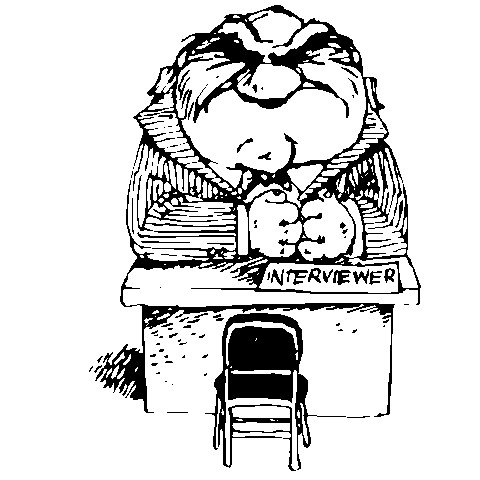
There is a fundamental difference between leaders and managers. The manager will lead her group through the jungle with a machete, hacking away and clearing a path for the group to follow.
A leader, however, will climb the tallest tree and discover that they are actually heading in the totally wrong direction.
(paraphrased from Jim Collins, Good to Great)
Are you blindly working away day after day? Head down in your outlook calendar managing this week’s tasks and your “to-do” lists, delegating cleaning duties and administrative responsibilities or have you taken a moment to climb the tallest tree and discover that the work you’re so busy at on a daily basis is actually keeping you from realizing that you’re heading in the wrong direction?
The challenge of course is putting down the blackberry and looking up long enough to realize that you’re actually trapped in a hamster wheel. Hint: Hacking away will only keep the wheel spinning. The only way to get out is to climb the tallest tree.
Art Horne is the Coordinator of Care and Strength & Conditioning Coach for the Men’s Basketball Team at Northeastern University, Boston MA. He can be reached at a.horne@neu.edu.
Topics:
Art Horne,
Good to Great,
discipline,
development,
Leadership

They say it’s not what you know, but who you know.
They’re right. But take it a step further; it’s not WHO you know, but HOW you know someone.
It’s easy to meet someone at a conference, send them a LinkedIN connection and, voila, that person is permanently in your network. But I recently went through my LinkedIN “network” and realized I don’t even know who some of those people really are. What kind of network is that??? The same holds true for Facebook: How many of your “friends” do you consider your friends in real life?
Social networks like LinkedIN and Facebook are simple and often fake. Real networks take time to cultivate and develop. Shoot an email to someone when their team or school is in the news. Pick up the phone to ask for advice. Send a note if a somebody loses a loved one. A real network is about people looking out for one another.
So when that dream job finally opens up at that company you’ve always wanted to work for, a good networker will pick up the phone and feel comfortable calling to ask for that recommendation. A great networker, meanwhile, doesn’t need to call because that person on the other end already knows who you are and what you’re capable of.
Mark Harris
Associate Director, Athletics Annual Giving
Loyola University Maryland
Topics:
basketball resources,
Good to Great,
customer service,
everything basketball,
development,
networking

A friend of mine recently left his job at a major academic institution where he worked his way up from the ground floor into a middle management position before leaving for the upper ranks at a competitor’s on the west coast. As a courtesy to the organization in which he had given so much, and so much given to him, he approached his superior's administrative assistant and asked if there was a formal “exit interview” that he was to partake in prior to his final day at the end of the week.
“Usually only people that want to complain ask for exit interviews,” the administrative assistant explained, “did you still want to speak with him?”
“ummm, well, no, not anymore,” my friend replied.
Wouldn’t an exit interview be the perfect opportunity to gain feedback into your organization’s weaknesses, customer service, and operating procedures?
Sure the employee may be salty that they are leaving, but what chance for feedback do you have otherwise once they’ve walked out the door?
You should search out that employee and simply ask, “what can we do better?” This is the only time they won’t be afraid to tell you exactly how it is. You can sift through the salt and substance after, but once they’re gone, they’re gone, and hence so is the opportunity for your organization to improve.
Art Horne is the Coordinator of Care and Strength & Conditioning Coach for the Men’s Basketball Team at Northeastern University, Boston MA. He can be reached at a.horne@neu.edu.
Topics:
Art Horne,
basketball resources,
Ownership,
Good to Great,
discipline,
customer service,
everything basketball,
development,
managing

At the end of this next semester how will you introduce yourself?
Will your boss know you simply by the name on your driver’s license or as the leader of a new project? The staff nutrition expert? The master coach? The staff liaison to the health center, athletic training room or weight room?
If you want your colleagues and prospective employers to know your name you must be willing to bring your work to the world. You must be willing to rename yourself as "the person who gets things done." If you are not willing, well, that work will simply get outsourced to someone else who is.
Either or, the work will eventually get done.
You might as well have your name on it.
Art Horne is the Coordinator of Care and Strength & Conditioning Coach for the Men’s Basketball Team at Northeastern University, Boston MA. He can be reached at a.horne@neu.edu.
Topics:
Art Horne,
Strength Training,
motivation,
Ownership,
Good to Great,
discipline,
athletic trainer,
managing

Do you treat your each patient as if they were your daughter?
Do you listen attentively while taking an injury/illness history as if you were listening to your grandmother? Do you welcome each patient into your treatment room with a smile and thank them for stopping in? Do you call your patients after surgery just to make sure they are doing ok – you know, just the way your mother used to with you?
I remember being an athletic training student at Canisius College when I was challenged by my mentor, Pete Koehneke, to treat every patient as if they were his daughter or a family member.
Boy, did my attention to detail quickly change.
How would the quality of your patient care change if you were treating your daughter/son or better yet your boss’ child?
Would you still be texting on your cell while performing that ultrasound treatment? How about the “advice” of rest and ice you gave the long distance runner without examining them first?
Would that change?
What if that track athlete was a family member? Your sister? Your child?
How would you treat your patient then?
Art Horne is the Coordinator of Care and Strength & Conditioning Coach for the Men’s Basketball Team at Northeastern University, Boston MA. He can be reached at a.horne@neu.edu.
Topics:
Ownership,
Health,
Good to Great,
athletic trainer,
customer service,
evidence based medicine,
Leadership

In a recent post by Seth Godin he challenges one’s normal approach to problem solving which is usually the “wait to be inspired then act” method and asks us to instead actively seek out inspiration.
Seth states, “Simple example: start a blog and post once a day on how your favorite company can improve its products or its service. Do it every day for a month, one new, actionable idea each and every day. Within a few weeks, you'll notice the change in the way you find, process and ship.”
My challenge to you is to take Seth’s example of blogging, but instead of blogging about your favorite company, write down one new actionable idea each and every day this coming month that will improve your department’s service to your student-athletes. It may be as simple as greeting each athlete or patient with a high five as they enter your office or as complex as a new pre-participation exam that actually screens them for risk factors that matter. Or how about an idea that will provide your staff with more opportunities to ship?
Once you’ve committed to writing down these ideas you’ll not only discover there are a number of easy ways to improve your services, but you’ll actually find yourself leading others to the trough of change.
Warning: you can lead a co-worker to water, but you can’t make them drink. But gosh darn it, seeing you drink first makes it a whole lot easier for others to drink the cool-aid.
Art Horne is the Coordinator of Care and Strength & Conditioning Coach for the Men’s Basketball Team at Northeastern University, Boston MA. He can be reached at a.horne@neu.edu.
Topics:
athletic training,
Strength & Conditioning,
motivation,
Ownership,
Good to Great,
discipline,
customer service,
evidence based medicine,
development,
Leadership,
managing

A good friend from Australia sent me this clip about workplace motivation. Besides the awesome animation, it’s just under 11 minutes and worth every second of it.
It may surprise you that monetary incentives are not the lead motivator in the workplace, but instead the three factors that lead to better performance and personal satisfaction are:
Autonomy: desire to be self directed.
Mastery: our urge to become better.
Purpose: When profit motive becomes unmoored from purpose motive bad things happen (bad customer service, crappy products, etc).
How does this change your management strategy this week?
Art Horne is the Coordinator of Care and Strength & Conditioning Coach for the Men’s Basketball Team at Northeastern University, Boston MA. He can be reached at a.horne@neu.edu.
Topics:
basketball conference,
athletic training conference,
athletic training,
Strength & Conditioning,
motivation,
autonomy,
purpose,
mastery,
Good to Great,
discipline,
customer service,
development

I don’t know where I first heard this, but it has stuck with me ever since. I probably was complaining about a project, or telling my boss it was too hard to get something done on time.
I was giving him my 2 cents.
What I should have been giving him was my full effort and my full investment of time and energy.
When it comes to delivering projects on time, or shipping, I want the finished project, “show me the money!”
I want a sustainable and impactful change, no barbershop talk, no excuses as to why it can’t be done.
I want your money – not your two cents.
Art Horne is the Coordinator of Care and Strength & Conditioning Coach for the Men’s Basketball Team at Northeastern University, Boston MA. He can be reached at a.horne@neu.edu.
Topics:
athletic training conference,
Strength & Conditioning,
Ownership,
show me the money,
jerry mcguire,
Good to Great,
discipline,
development

On line resources define Evidence Based Medicine as the following:
ev•i•dence-based med•i•cine
noun
Definition:
treatment based on reliable evidence: the use of clinical methods and decision-making that have been thoroughly tested by properly controlled, peer-reviewed medical research.
Now that we got that out of the way we can move forward with your definition?
The same?
You sure?
No other phrase has infiltrated both sports medicine and strength and conditioning more in the past decade, and for good reason. It guides clinical practice and allows us to allocate resources, time, and personnel towards obtaining best practice. The problem is not with evidence based medicine but with individuals providing “their own definition” in defense of the work they are conducting.
So the next time your co-worker starts ultra-sounding an entire thigh simply ask them what their definition of evidence based medicine is. Hint: we are not allowed to each have our own definition.
Art Horne is the Coordinator of Care and Strength & Conditioning Coach for the Men’s Basketball Team at Northeastern University, Boston MA. He can be reached at a.horne@neu.edu.
Topics:
basketball conference,
basketball training programs,
athletic training conference,
athletic training,
Strength & Conditioning,
Health,
Good to Great,
discipline,
evidence based medicine,
development,
Leadership,
managing

There's an employee outside of my department that I've known for some years. For pretty much the entire time I have known them they have been telling people they were planning on leaving for greener pastures soon enough. This has been going on for about five years now, but for some reason they have been unable to find a situation that better suits their needs. In the interim, let's just say that they have not been the model of ownership. Sure, they do their job, but along the way they also complain about their responsibilities, their poor compensation, and the state of their department in general to anyone willing to listen. They also fail to understand why it is that they are still stuck in a less than ideal circumstance and are unable to find another job. Hmmm, baffling.
You may recognize it, but the title of this post is taken from a quote by entrepreneur Shawn Carter who you may know better as Jay-Z. Over the years Carter has continually reinvented himself and excelled in every avenue that he's explored. He has gone from being a successful artist to owning a record label, his own major clothing line, a chain of upscale sports bars, and an ever increasing number of other ventures. Carter continually excels because he has the drive to succeed, but also because he understands that his name is a brand. In today's age many artists, athletes and other celebrities continually make poor decisions that ultimately paint their names in a negative light and simultaneously limit their future potential. While many of these people do not fully understand that their name is their brand, Carter grasps the notion that while he is marketing all of his businesses, more importantly he is marketing himself.
What does this have to do with you? Let's forget about the effect your actions have on your workplace for a minute and focus on the effect they have on you. Every decision you make, every meeting you attend, and every conversation you have impacts the way that supervisors, employees, and co-workers perceive you. When you complain about your surroundings, belittle your fellow employees or put forth a mediocre effort you are definitely influencing your image, but is that really the image you want to put forth? Your brand is what ultimately makes the difference between advancing in your profession and continuing to work in a position that is less than your ideal circumstance. You are your own business and you should be marketing yourself accordingly. Shawn Carter knows it. Why don't you?
Shaun Bossio is the Assistant Business Manager and ProShop Manager at Boston University FitRec.
He can be reached at sbossio@bu.edu
Topics:
basketball performance,
athletic training conference,
athletic training,
Strength & Conditioning,
Ownership,
shawn carter,
jay-z,
Good to Great,
discipline,
development,
Leadership












